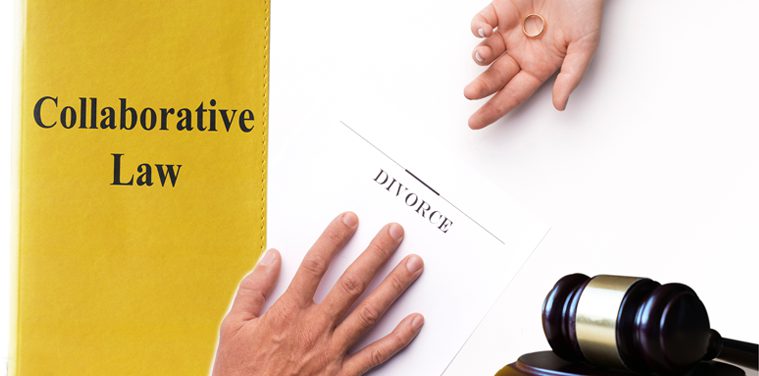Popular Blogs

The stress, mess, and unrest caused by a traditional divorce is often the prime reason why people are looking for alternative ways of ending their marriages. Be it the expensive court proceedings or emotionally taxing trial sessions, the court rules are tougher when it comes to a divorce case. While mediation has its share of takers, some people believe that in mediation, one party can be significantly downplayed by the other. The newest entrant into the family law, also known as collaborative divorce, is the solution to all those suffering from the above-mentioned aftermath of a divorce decision.
As per the law, collaborative divorce is a process that allows the husband and wife to settle their divorce files outside the court. This saves money and time for both the applicants to continue their normal lives without taking out time to visit the court. Critical terms of divorce such as child support and custody, property division, debt division, and spousal support are discussed using the negotiation and mediation process. In case of such collaborative divorce, the needs of both parties are addressed with legal protection and hence keeping the relation functional even after divorce.
To proceed further and decide whether such a divorce will suit you or not, let us check out the various steps in collaborative divorce –

For a collaborative divorce process to work, it is essential that the divorcing spouses mutually decide. Any objection from one of the spouses will ensure that collaborative divorce cannot work. After such a mutual agreement, both parties will hire their respective attorneys. However, it is advised that professional collaborative attorneys are hired for the job so that they can vouch for the claims rather than leaving it all on the judge’s call. Your attorney will back your claims and fight against any clause you might not be comfortable with. Such lawyers should be more focused on alternative dispute resolution means such as mediation rather than dragging the differences to the court of law.
For collaborative divorces, each participant needs to have a private meeting with the hired attorney. In this meeting, the following points are to be discussed-
Additionally, in such cases, the need for a collaborative divorce team is high. Such a team works for both the participants and includes a divorce coach, financial specialist, and child specialist. While having such a team is situational and depends on the couple and lawyers, having a child specialist on board is highly suggested if children are involved in the relationship.
There will be many four-way meetings between the participants, along with their respective lawyers. In the initial meeting, a “no court agreement” will be signed by all, stating that if any of the participants back off from the process and wishes to go forward with a contested divorce, the lawyers can withdraw themselves from the case.
Note- Once you lose out on attorneys and collaborative divorce teams, getting a new team will be a costly affair.
Both the parties in collaborative divorce duly sign a Participation Agreement, and it obligates them to disclose all the information. It requires both spouses to submit valid information regarding their salaries, taxes, employment, assets, and debts. In addition, all your 401K deposits during the marriage are considered, and you have to submit the authentic details to your spouse’s attorney. If you doubt your spouse might hide assets or play foul in terms of the financial declaration, then collaborative divorce is probably not for you!
After these steps are meticulously followed over time, and both the parties come to a common conjecture regarding the divorce, a settlement agreement is made. If the judgment seems fair, both the parties sign the document, which then gets approved by the judge.
Whether a collaborative divorce process is apt for you or not depends wholly and fully on the relationship you share with your spouse. If the relationship is of distrust, violence, and toxicity, you would better be off to a court and fight a contested divorce. On the other hand, if both of you trust each other with all the information and seek a mutual divorce, collaborative divorce is the way to go.
Be it of any kind, divorces are tough. Be it mentally, physically, emotionally, or financially; a divorce takes a toll on all these factors. Having a professional collaborative divorce lawyer by your side is the need of the hour. While you can search for the best collaborative divorce lawyers on any search engine or even can seek references, you won’t have a filter to keep bad references or suggestions out. The Legal Helper helps you find the best divorce lawyer who will help you on the case with their load of experience. Our filters ensure that only the best lawyers are listed for your case! Fill out the form right away.